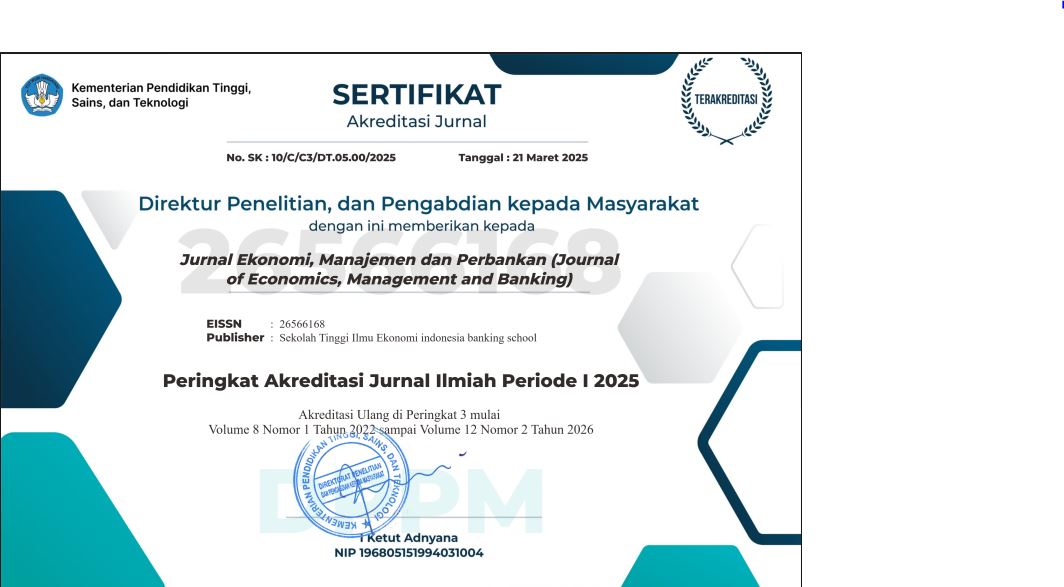Analisis Service Recovery Sebagai Strategi Perbankan Terhadap Kepuasan Nasabah (Studi Pada Bank BTN Kantor Cabang Depok)
DOI:
https://doi.org/10.35384/jemp.v4i1.118Keywords:
Service recovery, customer satisfactionAbstract
The current level of competition in the banking industry is getting stronger and enable banks to do all kind of business to attract customers as much as possible, and make them satisfied. The bank always trying to improved the quality of service in this competition, and one of them is Bank BTN. Bank BTN managed the 6th of the top 10 Bank Service Excellence Monitor. The purpose of this research is to know customer satisfaction through service recovery. This research is quantitative descriptive research. This research used survey method by using questioner. The sample of this research is the customer of Bank BTN who experienced service failure especially ATM. Purposive sampling is used to select respondents, with 60 respondents and using Statistical for Solutions Products and Services (SPSS) as a technique of data analysis. The results of the research revealed that: 1. Distributive justice is positively related to customer satisfaction, 2. Procedural justice is positively related to customer satisfaction, 3. Interactional justice is positively related with customer satisfaction, 4. Distributive justice, procedural justice, interactional justice, together positively related to customer satisfaction.
Downloads
Published
Issue
Section
License
Authors who publish with this journal agree to the following terms:
- Authors retain copyright and grant the journal right of first publication with the work simultaneously licensed under a Creative Commons Attribution License that allows others to share the work to acknowledge the work's authorship and initial publication in this journal.
- Authors can enter into separate, additional contractual arrangements for the non-exclusive distribution of the journal's published version of the work (e.g., post it to an institutional repository or publish it in a book) with an acknowledgment of its initial publication in this journal.
- Authors are permitted and encouraged to post their work online (e.g., in institutional repositories or on their website) before and during submission. It can lead to productive exchanges and earlier and greater citation of published work.















